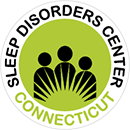People who have difficulty falling asleep or staying asleep, or those who experience poor quality sleep, often are said to suffer from “insomnia.” Occasional insomnia affects between 36% and 56% of the adult population. Chronic, ongoing problems with insomnia affect between 9% and 17% of the adult population. People who suffer from insomnia are most likely to be older, and women are more likely to report this problem than men. People with insomnia commonly report one or more of the following problems: difficulty falling asleep, multiple brief awakenings, long awakenings, early morning awakenings, short sleep time and poor quality sleep.
Until recently, insomnia was not considered a significant health care problem. However, we now know that insomnia is associated with a number of health concerns that warrant the attention of physicians. Insomnia is associated with impairments in attention, concentration, and memory, impaired quality of life, poor performance in work and school setting; increased risk of accidents and injuries due to fatigue; higher rates of alcohol and substance abuse, depression and frequent visits to the physicians office and hospitals.
The treatment of insomnia is varied, and can involve the use of medication or certain non-drug approaches. There are number of prescription medications for insomnia that are both effective and safe, and which are not associated with increased of dependence. Fears of being “hooked” on sleep medication that accompany the use of older classes of medication are unfounded with newer sleep aids. People with sleep insomnia may take greater risk when they fail to pursue adequate medical treatment. These treatments while challenging to many may offer significant relief.
Most people with insomnia do not require overnight evaluation in the sleep laboratory for their problems. Treatment success usually is achieved by working closely with your regular doctor. How ever, those who have chronic problems that don’t get better with conventional medications or therapies may be referred to a sleep center for complete evaluation including testing and treatment. Approximately one in ten people with insomnia have an underlying sleep disorder such as RLS, PLMD, or sleep apnea.
